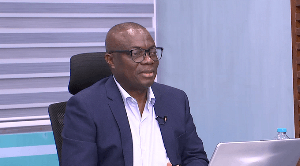For the next three months, covering the period April to June, government has committed to providing households, private enterprises – with the exception of commercial suppliers of water such as sachet and bottled water producers – and public institutions with free water. It will also give lifeline electricity users free power, and everyone else, a 50 percent subsidy on their electricity bills.
This is a very effective way of alleviating the inevitable debilitating effects of the coronavirus outbreak in Ghana.
However, this newspapers has two major worries about the possible consequences of the implementation, if care is not taken.
One is obvious – there is the danger that encouraged by the prospect of not having to pay bills, people will start to be wasteful in their usage of water, electricity, or both. This would put inordinate strain on the production and distribution capacities of the state owned institutions responsible for providing these public utilities.
The other potential problem is less widely recognized, but is within the ambit of government to avert it. This relates to the financing of the free and subsidized supply of the utilities.
Because all the institutions in the supply chain inevitably will continue to incur their usual production and distribution costs, the plan is for government to meet all the bills that would otherwise have been incurred by beneficiaries of the subsidies. But government would do well to remember how and why it did away with such subsidies in the first place, several years ago.
This was partly done by borrowing, a financing mode which government has currently accepted to do and indeed has planned for. But it was also partly done by simply withholding payments due to the utility providers for the subsidized portion of what they had provided. Indeed, even after subsidies were scrapped, government has still tended to avoid paying its own bills.
If government adopts this strategy again under the current circumstances where usage is likely to rise because of the subsidies, the result would inevitably be a significant reduction in service quality, in the form of a major gap between the volumes of demand and the volumes of supply.
The result would be widespread incidents of power outages and cut off of water supply.
This is not what government set out to achieve with its reintroduction of subsidies on public utilities and it is definitely not what Ghanaians need during these current unprecedentedly trying times.
Indeed, the only situation that could be worse for Ghanaians than an unsuccessful financial struggle to meet power and water bills is an irregular supply of those utilities, with power outages and dry water taps becoming the order of the day.
Therefore we call on government to ensure that it pays customers’ bills as computed by the ECG, Ghana Water Company and the other state institutions involved in then supply and distribution of those public utilities. Having opted to subsidize them, government must be ready to borrow to meet those bills, no matter how it affects the public debt.
But if somewhere along the line government decides it cannot meet the requisite financial obligations, it must have the courage to admit to this openly and reduce the level of subsidies.
A reduction in subsidies, although unpalatable, would still be better than irregular supply due to inadequate financial commitment.
Business News of Thursday, 16 April 2020
Source: goldstreetbusiness.com













